5 Top Causes of Hair Loss
Could it be stress, childbirth or your hair dying habit? Find out why your hair is falling out—and what you can do about it.
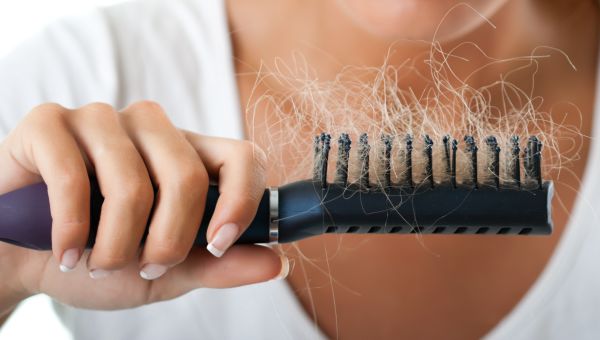
Do you ever feel like you’re shedding more hair than you should? Maybe you’ve noticed a little too much hair in your hairbrush or there are more strands than usual circling around the shower drain. A bald patch might even start to peek through. You’re not alone.
According to the National Institutes of Health, some 80 million people in the U.S. suffer from hereditary hair loss alone. Click through for the five top reasons you may be losing your hair—and don’t forget to reach out to your healthcare provider if you’re concerned about your hair loss. There are many treatment options you can try.
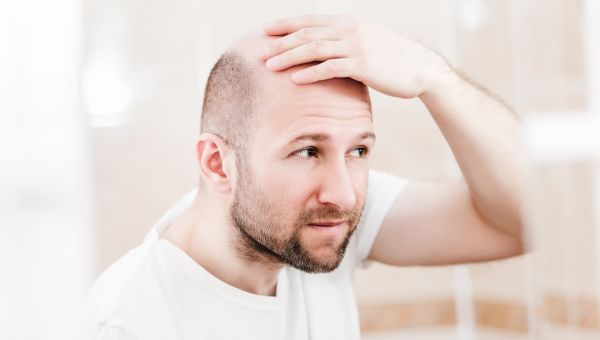
Hair Disorders
Hereditary thinning or baldness (also known as androgenetic alopecia) affects both men and women, but not in the same way. “You’ve got to break down hair loss into male- and female-patterned,” says dermatologist Amy Kim, MD. For men, this usually means a receding hairline, while women start thinning on the front center part of their head.
Before shaving your head in defeat, there are treatments that can help. Propecia, only prescribed for men, can stop hair from falling out if caught early. Products with minoxidil may promote hair growth for men and women.
While hereditary thinning is the most common, alopecia areata, believed to be an autoimmune disorder, is another cause. In some cases, corticosteroids or other medications that suppress the immune attack may be effective treatment options.
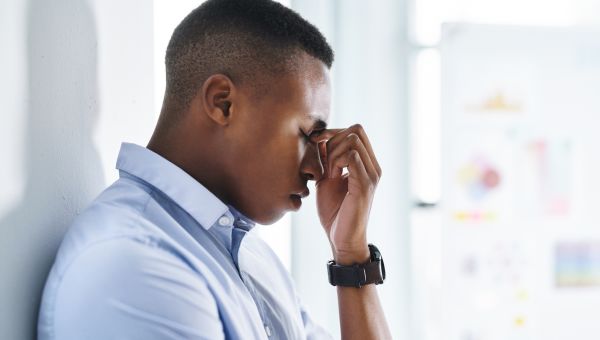
Stress and Hormones
One bad day at work may make you feel like pulling your hair out, but significant physical or mental stress that can really cause your mane to wane. “It’s called telogen effluvium,” says Dr. Kim. A major physical or emotional stressor, such as a loved one’s death, divorce or a major surgery, can cause hair roots to go into resting state (telogen) prematurely and then shed (effluvium).
For women, major fluctuations in hormones play a significant role in hair loss, too. After childbirth, falling estrogen levels may cause hair to thin, but don’t worry—it will grow back over time. During menopause, estrogen and progesterone levels fall while male hormones, or androgens increase. This can cause your hair follicles to shrink and your hair to fall out.

Diet Deficiencies
What you may—or may not—put in your belly can affect what’s on the top of your head. When it comes to diet, iron-deficiency, especially common in women, can cause hair loss. Try adding more iron-rich foods to your diet. Meat is one of the best sources of iron, but plant-based foods, including beans, tofu and fortified grains (found in breakfast cereals and bread) can help as well. Make sure you’re getting enough protein, too, as low levels can cause your body to store what protein it has, stopping hair growth.

Medical Conditions and Medications
Hair loss may be your first clue to a serious medical problem, such as thyroid disease. In fact, some 30 conditions can result in hair loss, but treating the condition can reverse the process. Certain cancer treatments are another well-known cause of hair loss but, again, hair likely regrows when treatment ends.
Some medications may also result in thinning hair. These include blood thinners; meds for depression, heart disease, high blood pressure, arthritis and gout; and starting or stopping birth control pills.
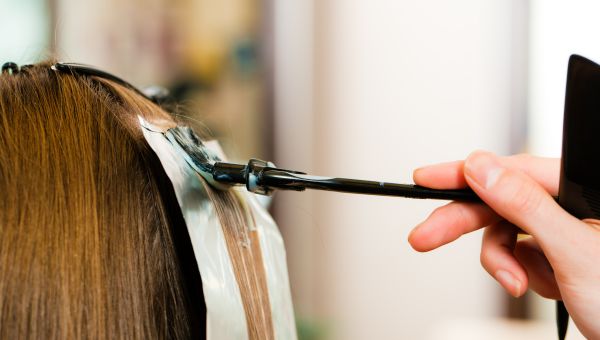
Hair Care
Spending money on costly hair appointments just for your hair to take a hike? That may be the case if your hair is over processed with dyes, relaxers and straighteners. You can do just as much damage at home: Constant heat from a blow dryer or flat iron can leave hair dry, brittle and prone to break. When using a flat iron, make sure your hair is completely dry first. “Even if it’s a little wet it can cause problems and fry your hair,” says Kim.
Wearing a tight ponytail day after day can literally pull hair out. “It’s called traction alopecia,” says Kim. “It puts too much physical traction on the hair follicles and you can lose your hair.” This goes for cornrows and braids as well.
More On


video
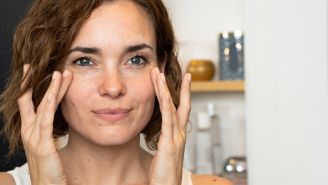
article

slideshow


video


video
